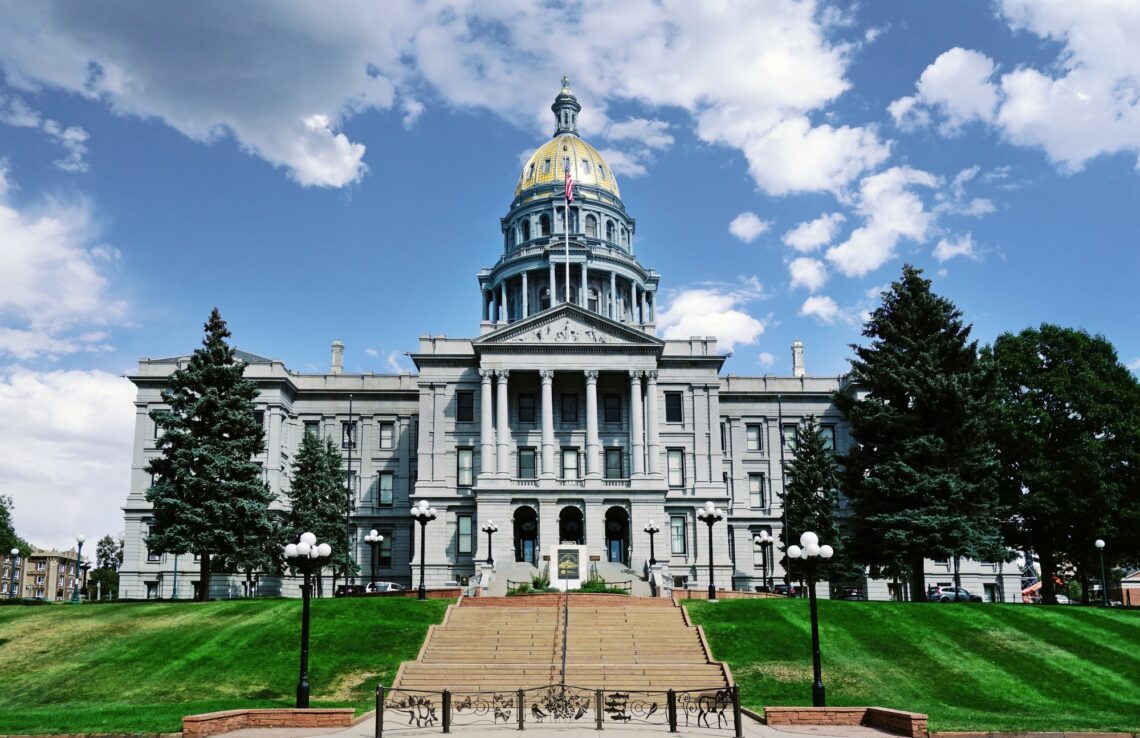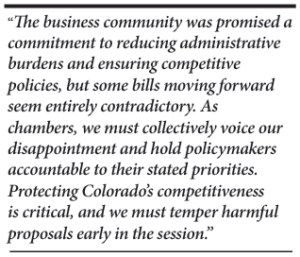
The 2025 legislative session is off to a slow start, but a number of bills have already grabbed the attention of the Grand Junction Area Chamber of Commerce. With proposals spanning air quality regulations, workforce protections, and emergency response measures, this session promises to be one that could significantly impact Colorado’s business environment.
One bill that has drawn support from the Chamber is HB25-1042, which establishes a workforce advisory council to evaluate economic and worker safety impacts in air quality regulations. For years, the Chamber has raised concerns about how ongoing regulatory requirements and ambitious climate goals have displaced workers across Colorado. These changes have not only eliminated positions but also created gaps in the workforce’s ability to meet new expectations. By ensuring workforce impacts are considered in regulatory decisions, HB25-1042 represents a balanced approach to achieving environmental goals while protecting jobs and economic stability.
Another bill gaining the Chamber’s support is HB25-1053, which provides immunity from civil liability for landowners who allow emergency access to their property, except in cases of gross negligence or willful misconduct. As wildfires become a growing concern, this measure addresses a critical issue—delays in emergency response caused by legal risks to landowners. By removing these barriers, the bill incentivizes cooperation during emergencies, enabling faster and more effective responses that benefit the entire community.
 Not all proposed legislation has been met with support. The Chamber opposes HB25-1001, which expands employer liabilities under wage and hour laws. This bill redefines “business owner,” introduces new penalties for wage violations, and allows independent contractors to sue under the Wage Act. While the Chamber supports fair treatment of workers, the proposed changes introduce significant risks and complexity for businesses. Small business owners, in particular, could face increased litigation and administrative burdens, discouraging entrepreneurship and stifling job growth.
Not all proposed legislation has been met with support. The Chamber opposes HB25-1001, which expands employer liabilities under wage and hour laws. This bill redefines “business owner,” introduces new penalties for wage violations, and allows independent contractors to sue under the Wage Act. While the Chamber supports fair treatment of workers, the proposed changes introduce significant risks and complexity for businesses. Small business owners, in particular, could face increased litigation and administrative burdens, discouraging entrepreneurship and stifling job growth.
Similarly, HB25-1010 has raised concerns within the business community. This bill aims to prohibit price gouging on “necessities” at all times, rather than limiting it to declared disasters. However, the broad and undefined nature of “necessities” creates uncertainty for businesses, and the retroactive pricing provision could penalize companies responding to market challenges such as supply chain disruptions. While well-intentioned, the bill risks unintended consequences that could hurt businesses already navigating economic pressures.
Reflecting on these early legislative discussions, Candace Carnahan, President & CEO of the Grand Junction Area Chamber of Commerce, shared her perspective:
“The business community was promised a commitment to reducing administrative burdens and ensuring competitive policies, but some bills moving forward seem entirely contradictory. As chambers, we must collectively voice our disappointment and hold policymakers accountable to their stated priorities. Protecting Colorado’s competitiveness is critical, and we must temper harmful proposals early in the session.”
As the session unfolds, the Chamber’s Governmental Affairs Committee will continue to closely monitor these and other bills, advocating for policies that balance economic growth with regulatory responsibilities. Chamber members are encouraged to stay engaged and participate in discussions to help amplify the voice of the business community during this important time.
To stay up to date on bills we are currently tracking along with positions we have taken, visit our Legislative Session Bill Tracking.
